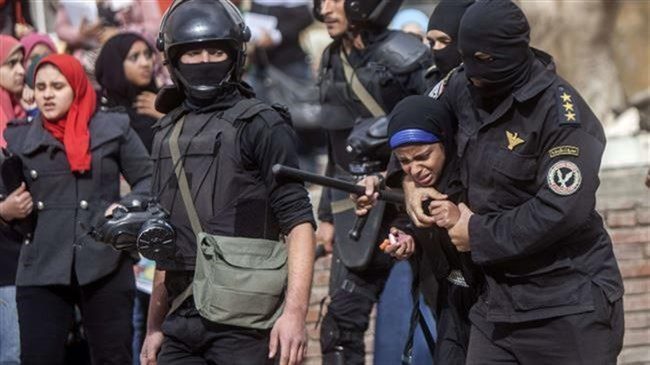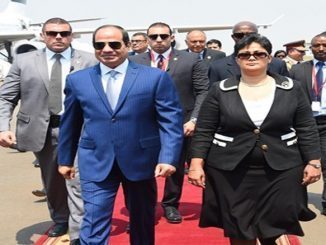
Egypt must ensure no one is subjected to reprisal in relation to Special Procedures missions. Resettlement and compensation of those evicted must comply with international human rights law, says a report by UN Special Rapporteur on the right to housing, who visited Egypt in Sept/Oct.
The UN Special Rapporteur on the right to housing condemned the forced evictions, housing demolitions, arbitrary arrest, intimidation and reprisals against persons she met during her official country visit to Egypt from 24 September to 3 October 2018.
“Egypt has failed to adhere to the assurances provided to me that no person would be harassed, intimidated or subjected to reprisal for meeting or providing information to me or my delegation in the context of my visit,” said the Special Rapporteur on the right to housing, Leilani Farha.
“I am shocked that after my mission a number of families from two communities I visited have suffered forced eviction contrary to international human rights law. Several multi-storey houses have been demolished, furniture was thrown into the street, and residents have been made homeless.
“According to information received, adequate notice was not provided to the victims nor was alternative accommodation or compensation. In addition, security officials reportedly resorted to excessive use of force against residents when they refused to leave their homes. Among those targeted were several houses and apartments belonging to family members of community leaders with whom I met while I was on official mission,” said Farha.
“Human rights defenders and lawyers working on the right to housing also reported that they have been followed and photographed by persons unknown to them, to have received anonymous and threatening phone calls, or have been summoned to report at police offices for interrogation. One lawyer with whom Ms. Farha met after the visit was subjected to a travel ban,” said the Special Rapporteur on Human Rights Defenders, Michel Forst.
The reported reprisals also include the arbitrary arrest and undisclosed detention of a person who was only released from detention after signing a document granting permission to have their house demolished. The alleged incidents show a worrying pattern of reprisals against individuals and communities directly related to the visit of the Special Rapporteur on the right to housing.
The Terms of Reference for country visits of Special Procedure mandate holders specify that no person or group of persons who cooperate with a mandate holder will for this reason suffer intimidation, threats, harassment or punishment or be subjected to judicial proceedings or to any other kind of reprisals. They further indicate that no measures that could be perceived as reprisals should be undertaken before, during or after the mission1.
The Human Rights Council has reaffirmed in several resolutions that everyone has the right to unhindered access and communication with the human rights mechanism of the United Nations and urged States to refrain from all acts of intimidation or reprisal2.
The Special Rapporteurs have also raised concerns with the Government of Egypt about restrictions on Ms. Farha’s ability to undertake confidential and unsupervised contact with witnesses, individuals and those deprived of their liberty while in Egypt.
In addition, Ms. Farha expressed disappointment at having had no access to Warraq Island, where there is a conflict between residents and authorities over expropriations and home demolitions. She is concerned about reports of new expropriations and home demolitions related to the development of the island.
The Special Rapporteurs furthermore expressed their hope that a rights-compliant solution could be found for a number of residents who remain on 26th July Street in the centre of Cairo. “The Government should offer them an opportunity to stay in their homes, or – if relocation is unavoidable – a choice between compensation, or inclusion in the development scheme for the Maspiro triangle area which would allow them to remain in their neighbourhood,” they said.
In early November, the two UN human rights experts had raised officially their concerns and sought clarification regarding the alleged forced evictions and reprisals with the Egyptian Government. They have not yet received an official reply.
“Unless Egypt ensures that human rights defenders and victims of human rights violations can interact with UN human rights envoys without fear of reprisal, it is in our view not ready to host further visits,” the two experts concluded.
Egypt responds to UN report on housing rights
Egypt’s Foreign Affairs Ministry on Dec. 5 condemned the report of the United Nations (UN)’s Special Rapporteur on the right to housing, saying that it contained “baseless” allegations about the state’s housing policies.
The ministry said it had invited the special rapporteur to visit the country from 24 September to 3 October as part of the government’s openness to cooperate with international human rights bodies and to present the challenges faced by the government in providing suitable housing.
“Egypt was surprised by the special rapporteur’s attempts to fabricate facts and create problems in her meetings from the very start of her visit to Cairo, even though the state had provided her with all the assistance needed for her to carry out her duties,” the ministry statement read.
The UN rapporteur’s actions upon arriving in Egypt, the ministry added, “raised suspicions that she intended to defame the country deliberately.”
The Egyptian FAM explained that the special rapporteur had seen the government’s plan to build some 600,000 social housing units, with 300,000 units already been completed, while five per cent of the project units has been allocated to the disabled people. It has also seen the state’s plan to re-develop 46 unsafe slum areas inside and outside Cairo.
However, the ministry noted, the UN rapporteur “deliberately downplayed and concealed the government’s unprecedented achievements in providing adequate housing for citizens and the progressive and bold decisions taken by the government to create a shift in housing policies to ensure decent and adequate living standards for citizens without discrimination.”



